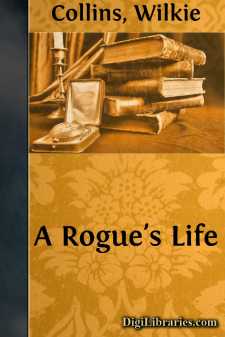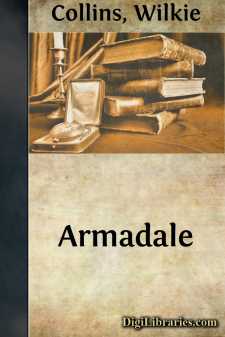Categories
- Antiques & Collectibles 13
- Architecture 36
- Art 48
- Bibles 22
- Biography & Autobiography 813
- Body, Mind & Spirit 142
- Business & Economics 28
- Children's Books 17
- Children's Fiction 14
- Computers 4
- Cooking 94
- Crafts & Hobbies 4
- Drama 346
- Education 46
- Family & Relationships 57
- Fiction 11829
- Games 19
- Gardening 17
- Health & Fitness 34
- History 1377
- House & Home 1
- Humor 147
- Juvenile Fiction 1873
- Juvenile Nonfiction 202
- Language Arts & Disciplines 88
- Law 16
- Literary Collections 686
- Literary Criticism 179
- Mathematics 13
- Medical 41
- Music 40
- Nature 179
- Non-Classifiable 1768
- Performing Arts 7
- Periodicals 1453
- Philosophy 64
- Photography 2
- Poetry 896
- Political Science 203
- Psychology 42
- Reference 154
- Religion 513
- Science 126
- Self-Help 84
- Social Science 81
- Sports & Recreation 34
- Study Aids 3
- Technology & Engineering 59
- Transportation 23
- Travel 463
- True Crime 29
The Legacy of Cain
by: Wilkie Collins
Categories:
Description:
Excerpt
CHAPTER I. THE GOVERNOR EXPLAINS.
At the request of a person who has claims on me that I must not disown, I consent to look back through a long interval of years and to describe events which took place within the walls of an English prison during the earlier period of my appointment as Governor.
Viewing my task by the light which later experience casts on it, I think I shall act wisely by exercising some control over the freedom of my pen.
I propose to pass over in silence the name of the town in which is situated the prison once confided to my care. I shall observe a similar discretion in alluding to individuals—some dead, some living, at the present time.
Being obliged to write of a woman who deservedly suffered the extreme penalty of the law, I think she will be sufficiently identified if I call her The Prisoner. Of the four persons present on the evening before her execution three may be distinguished one from the other by allusion to their vocations in life. I here introduce them as The Chaplain, The Minister, and The Doctor. The fourth was a young woman. She has no claim on my consideration; and, when she is mentioned, her name may appear. If these reserves excite suspicion, I declare beforehand that they influence in no way the sense of responsibility which commands an honest man to speak the truth.
The first of the events which I must now relate was the conviction of The Prisoner for the murder of her husband.
They had lived together in matrimony for little more than two years. The husband, a gentleman by birth and education, had mortally offended his relations in marrying a woman of an inferior rank of life. He was fast declining into a state of poverty, through his own reckless extravagance, at the time when he met with his death at his wife's hand.
Without attempting to excuse him, he deserved, to my mind, some tribute of regret. It is not to be denied that he was profligate in his habits and violent in his temper. But it is equally true that he was affectionate in the domestic circle, and, when moved by wisely applied remonstrance, sincerely penitent for sins committed under temptation that overpowered him. If his wife had killed him in a fit of jealous rage—under provocation, be it remembered, which the witnesses proved—she might have been convicted of manslaughter, and might have received a light sentence. But the evidence so undeniably revealed deliberate and merciless premeditation, that the only defense attempted by her counsel was madness, and the only alternative left to a righteous jury was a verdict which condemned the woman to death. Those mischievous members of the community, whose topsy-turvy sympathies feel for the living criminal and forget the dead victim, attempted to save her by means of high-flown petitions and contemptible correspondence in the newspapers. But the Judge held firm; and the Home Secretary held firm. They were entirely right; and the public were scandalously wrong.
Our Chaplain endeavored to offer the consolations of religion to the condemned wretch....












